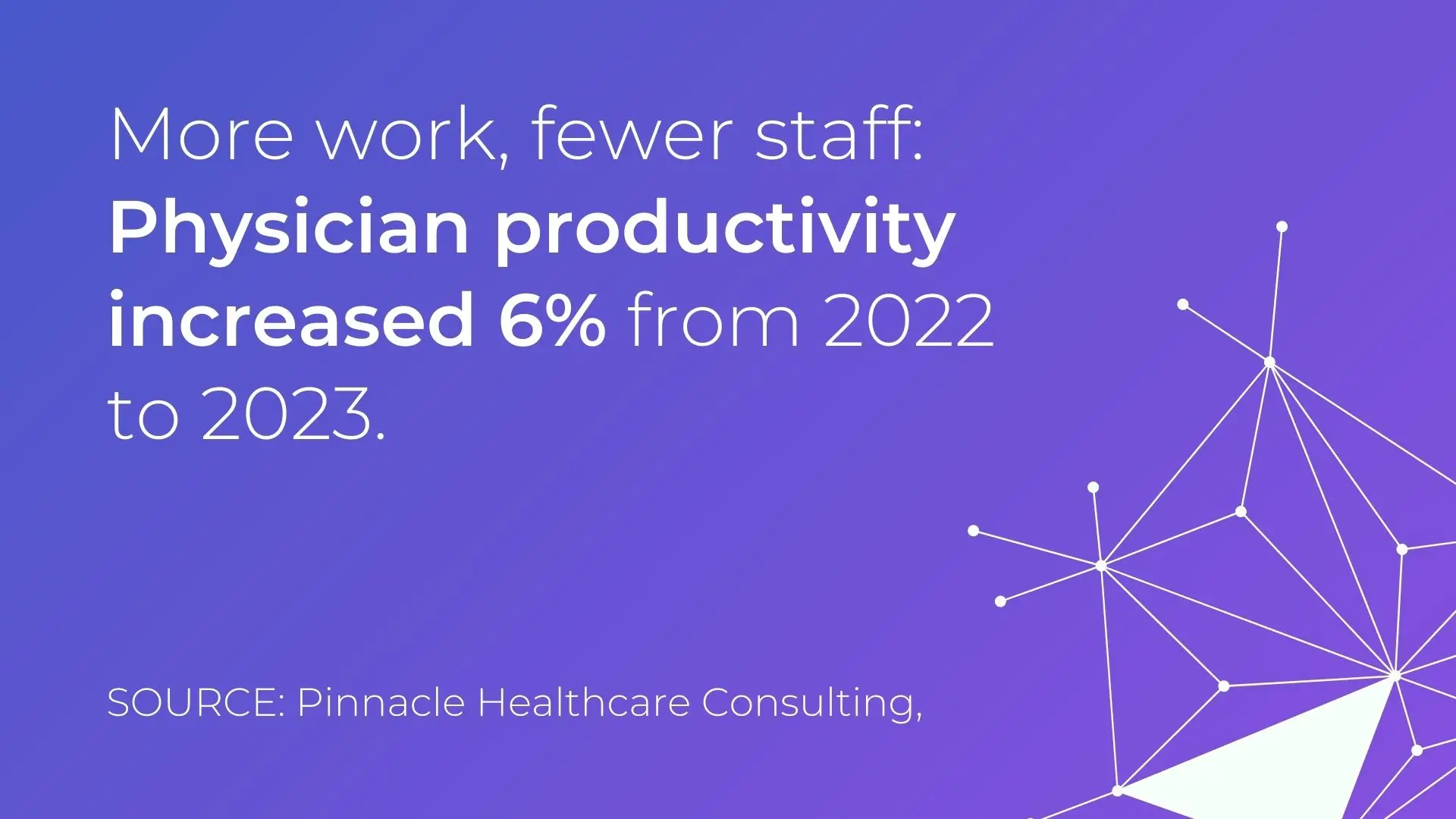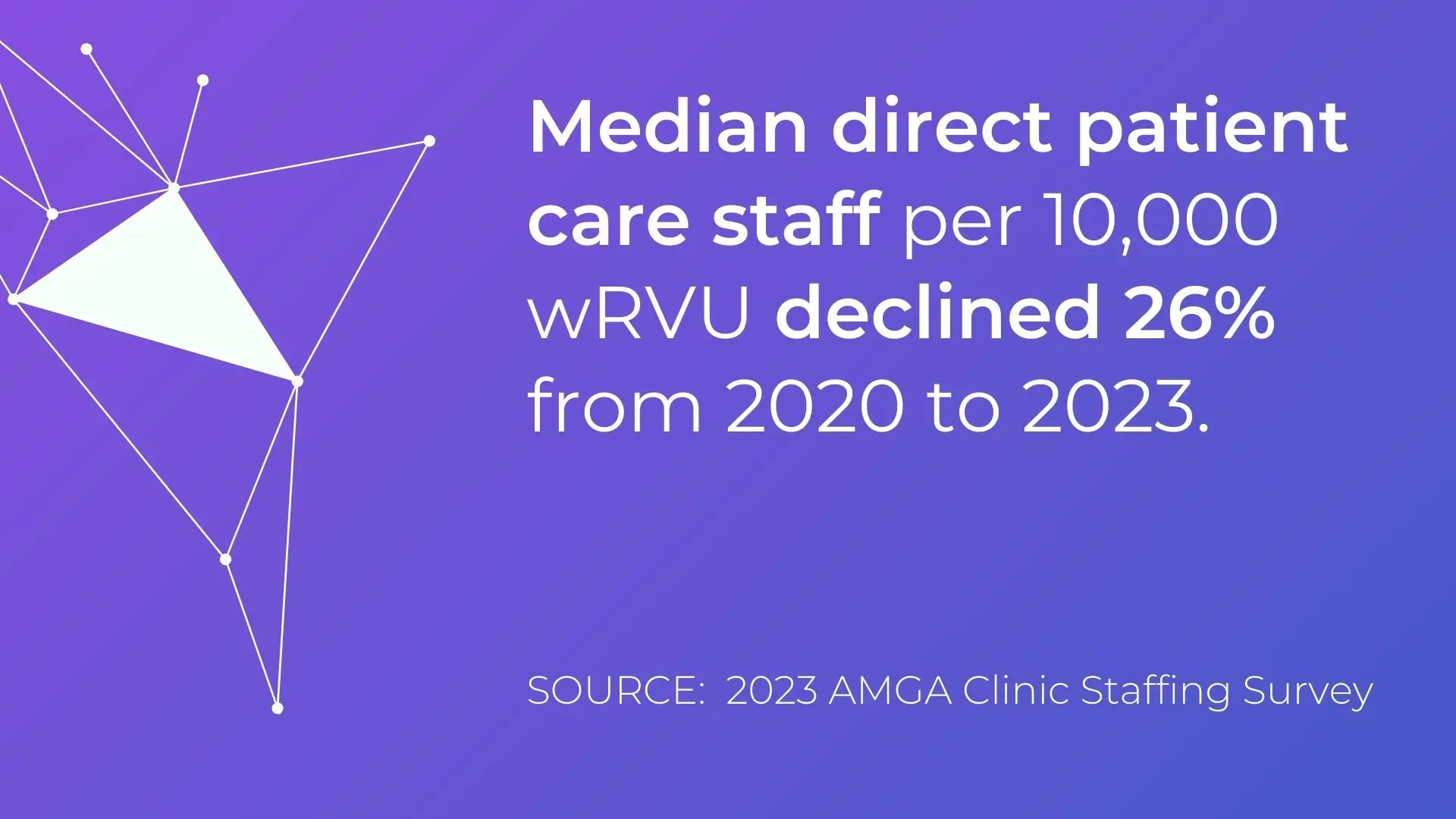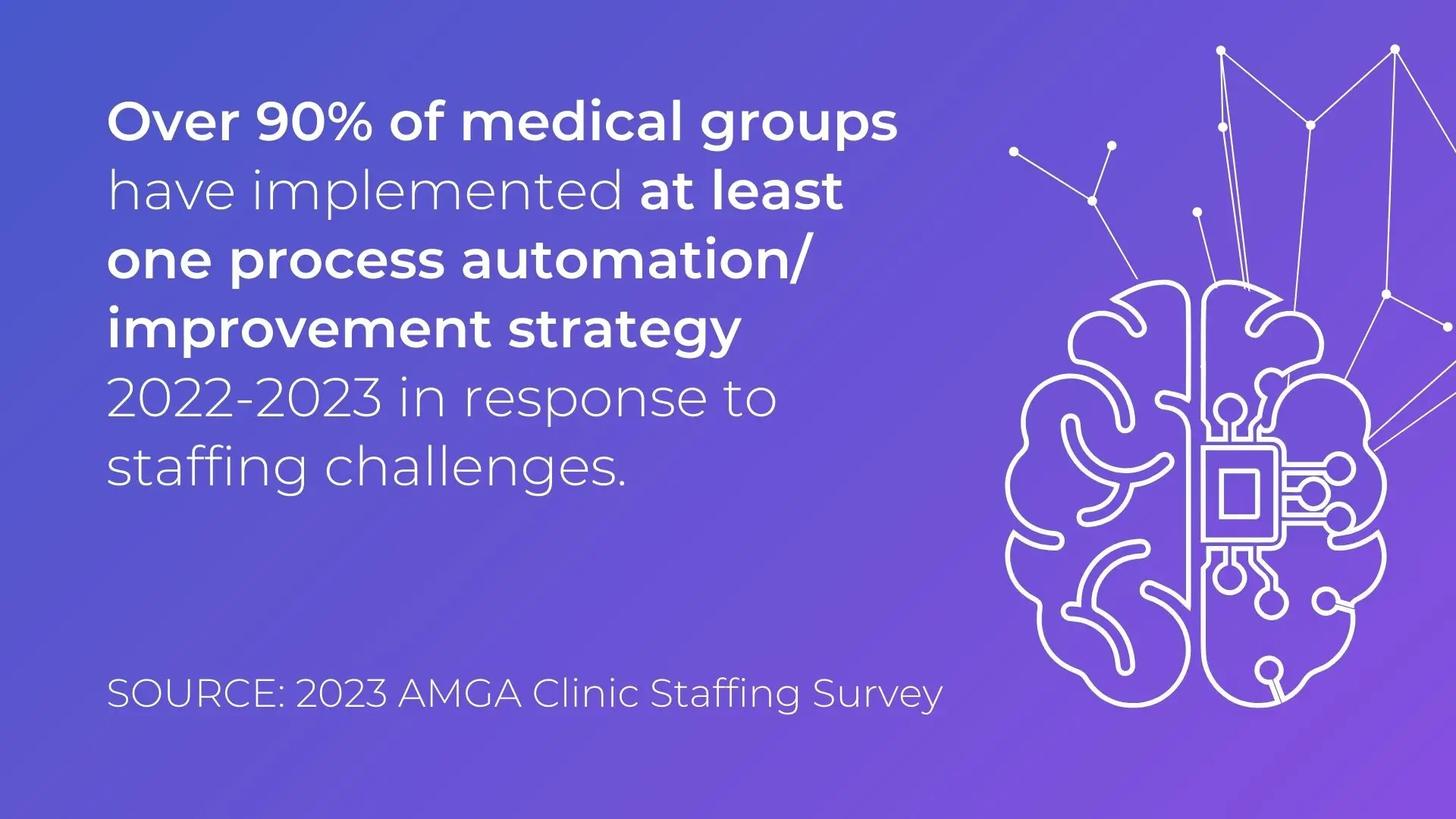
Medical groups across all specialties are struggling with workforce instability – but neurology groups find it particularly challenging to staff clinical roles.

The 2023 AMGA Clinic Staffing Survey found that overall clinic staffing has recovered overall since 2020 pandemic-related declines – but those gains were mainly in front office and administrative roles. Medical groups saw declines in staffing for clinical team members who provide direct patient care. Those declines become even more pronounced when adjusted for volume.

Neurology groups in particular are having a tough time filling clinical roles and retaining staff. Pinnacle Healthcare Consulting’s Lucas Hutchison, MHA recently told us that labor expenses now make up 84.8% of total expenses for medical groups – up from 82.4% in 2021. Neurology practices need to recruit and retain specialized clinical staff in a highly competitive market across all roles. Neurology groups may not be able to compete with the higher salaries mid-level practitioners can get from hospitals and are seeing increased turnover among CMAs and LPNs.
Back in 2022, the American Academy of Neurology interviewed 27 neurology practice business administrators and physician leaders about their strategies for coping with challenges hiring and retaining staff. These strategies are still in use – but practice leaders are finding that AI is becoming a must have. Practices need to work smarter, not harder.

Some neurology leaders know they have a lot of valuable data about their patients – but accessing and making sense of it is a challenge. Specialists are moving into population health management and need tools to understand and engage their panels holistically. Can neurologists identify and act on early detection opportunities using the multiple markers that indicate potential dementia and Alzheimer’s disease?
Others want to apply best practices by determining what data is useful for real-time insights, how to access that data, and what workflows could put it in front of someone who could take action to improve patient care. When patients with chronic disease require so much care, how can their physicians identify the right signals and make sure nothing falls through the cracks?
Many neurology leaders are trying to determine how to balance the use of human staff versus automated intelligence. A shortage of neurologists means it takes patients 6-9 months to be seen and many have to travel far distances. Can AI-supported care teams see more patients?
Neurology leaders spent time in Dallas discussing the need to improve engagement across all stakeholders: physicians and advanced practice providers, medical group staff, and patients – and even payers. Some discussion highlights:
Neurology practice administrators want to support new clinical programs, but find it difficult to balance their budgets. When polled, over half of attendees responding said that their overhead was 51-60%.
Like other medical group leaders, neurology practice leaders continue to combat margin compression with a portfolio of strategies. Most recognize the need for ancillary services to stay competitive and profitable – whether infusions or an in-house chronic care management service line.
Smaller clinics want to be able to set their own rates and be more in control of margins and rolling out products that can combat the decline of Medicare reimbursements. When polled, 50% of attendees responding said that reimbursements were their biggest challenge. Many are looking at partnering with pharmaceutical companies who need data for predictive analytics and the identification of potential candidates for research trials.
At the same time, practices struggle with the new investments because of the upfront cost and unknown or extended timeframe for earning revenue back on that investment. Chronic care management – which can be launched quickly for fast cash flow – can give practices some financial flexibility.
If we missed you in Dallas this week, we’d still love to connect about strategies to help you expand margin, improve patient engagement, and improve operational efficiencies with an in-house Chronic Care Management service line.
Please don’t hesitate to get in touch at sales@phamily.com!

Phamily © 2025. All Rights Reserved.